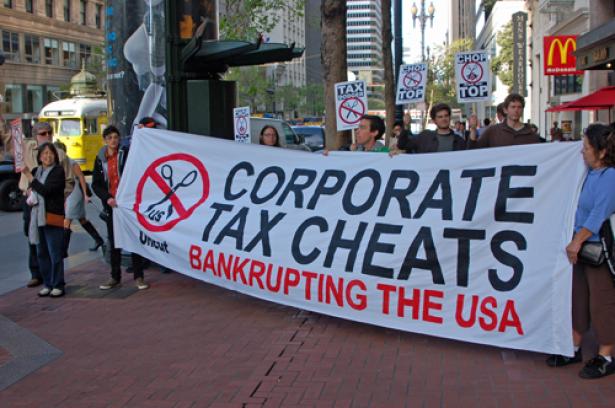Jeff Bezos is moving. The second-richest human being on the face of the Earth — with a net worth of some $166 billion — has been calling the Pacific Northwest home for quite some time. But he’s just announced on Instagram that he’s decamping Seattle and making Florida his new home sweet home.
The move, says Bezos, will bring him closer to his parents who now live in Miami.
“My parents,” adds the mega-billionaire, “have always been my biggest supporters.”
But the move doesn’t just bring Bezos closer to ma and pa. Bezos has had plenty of financial motivation to make the move — ever since Washington state started yanking out its low-tax welcome mat for the richest among us.
Those rich have flourished for years under a Washington state constitution that makes an income tax a no-no. Earlier this year, in March, that gravy train ended when the state’s supreme court justices okayed an end-run around this no-no. They gave their blessing to a 7 percent “excise” tax on capital gains from the sale of stocks, bonds, and other assets “in excess of $250,000 in a calendar year.”
Lawmakers in Washington now stand poised to take an even stiffer step against grand fortune. They’re contemplating a state wealth tax, a levy that would cost Bezos — if he chose to remain a Washington state resident — “about 45 percent of the more than $3 billion a year” the new tax figures to raise, a Tax Foundation analyst estimates.
Florida, by contrast, has no levy on grand wealth in the works and nothing in any way close to a state income tax on the books. And Bezos already owns a place of his own in Florida, a mansion on an artificial Miami island widely known as the “Billionaires Bunker.” He spent $68 million for that manse earlier this year and then, this past October, spent another $79 million to pick up the place next-door.
Could life possibly get any sweeter for Jeff Bezos and his billions? Not likely. In fact, those billions are now facing their first significant squeeze.
A worldwide squeeze. Last month, lawmakers and activists from over 30 nations gathered together in the UK, at the Mechanics’ Institute in Manchester, the historic birthplace of the British national labor movement. This first-ever global “Summit to Make Amazon Pay” set about developing policy solutions — at the municipal, national, and international levels — for confronting Amazon’s corporate abuses on everything from the environment and worker rights to tax justice.
That confrontation will intensify later this month. On November 24, the international retail industry’s “Black Friday” super-sale day, activists worldwide will be staging strikes and protests demanding that Amazon start paying for the damage this corporate giant is doing to worker families, their communities, and our shared planet.
“No company” on that planet today, U.S. senator Bernie Sanders told the Manchester summit, stands as “a better poster child” for “corporate greed and arrogance” than Amazon. Sanders made that observation about the same time Amazon was announcing that its quarterly profits had nearly tripled over the past year, a surge that just happened to come while Amazon was laying off some 27,000 workers.
The upcoming international November 24 Black Friday protests will be spotlighting everything from the glaring need for higher wages at Amazon warehouses to the environmental impact of Amazon’s ubiquitous delivery trucks.
In Spain, the city of Barcelona earlier this year imposed a new annual tax on the glut of e-commerce delivery vans congesting local streets. In Paris, deputy mayor David Belliard has blasted Amazon for “for making billions by using public space.” Proceeds from the new tax on e-commerce deliveries he’s suggesting could fund significant improvements in the city’s public transportation.
We all find ourselves today, Spain’s minister of labor Yolanda Díaz noted in her keynote address to last month’s landmark Summit to Make Amazon Pay, in “a conflict between profits and wages, a conflict over time and its free use, between the greed of a few and the possibility of a dignified life for the majority.”
The issues these conflicts raise, Díaz added, extend “much further” than Amazon, a reality that demands we “explore new ways to fund an ecologically democratic and fair plan” for moving forward, a plan that has Amazon and other corporate giants contributing “genuinely” to the common good.
That plan could, for instance, include the global climate tax on the world’s wealthiest the French economists Thomas Piketty and Lucas Chancel proposed earlier this year. Their World Inequality Lab proposal would levy a progressive tax of up to 3 percent a year on the world’s richest 0.001 percent, those deep pockets with fortunes worth at least $100 million.
To avoid a tax like that, Jeff Bezos would have to do more than move to Florida. He’d have to move to Mars.
Sam Pizzigati, an Institute for Policy Studies associate fellow, co-edits Inequality.org. His latest books include The Case for a Maximum Wage and The Rich Don’t Always Win: The Forgotten Triumph over Plutocracy that Created the American Middle Class, 1900-1970.


Spread the word